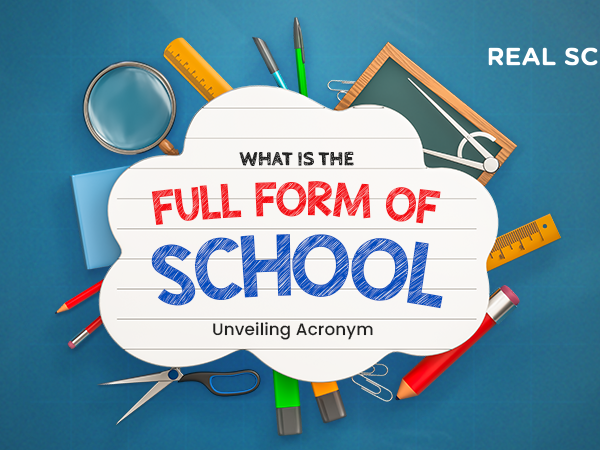Have you noticed people speaking slip and sleep, rich and reach, or cheat and chit similarly? It is because of their inability to differentiate between sounds. Thus, learning phonetic spelling for kids is extremely vital.
There are various things about which most people stay unaware about like what is phonetic spellings? And why is phonetics important for kids? Through this article, you will get the answer to all these things.
What are Phonetic Spellings?
In simple terms, phonetic spelling for kids is the way kids speak the alphabet. The relationship between the alphabets and the sound it produces is phonetics. For example, the alphabet ‘C’ produces the sound ‘si’, and the combination of letters ‘sion’ produces the sound ‘zen’.
Kids are required to learn the former ones. The latter is for the advanced level. Through learning phonetics, they would start reading words easily. Initially, they will break a word into parts to read or spell it. But that is good. It will improve their pronunciation.
Now you know what is phonetic spellings. So, the question is why is phonetics important for kids? The next section deals with it.
Also Read: Phonics Books for Kids: Books to Help Them Win Their New Reading Quests
Why is Phonetic Important for Kids? Every parent wants to see their kids perform well in school and ultimately in life. A vital step to ensure it is to develop reading skills. A good orator can influence everyone. But there are other benefits also. Some of them are:
Reading is a Great Activity for Brain
As parents, it is your responsibility to keep your kids always occupied. Reading is a great activity to ensure it. When they read, new neural pathways develop in their brain. Without understanding the sounds of different words, kids will fail to read properly. Thus, to give them the power to read, phonetic spelling for children is vital. Beyond this, it also develops thinking skills like reasoning by analogy and probabilistic reasoning.
Practising Phonetics Will Make You Better
When your kids practise reading with phonetics, they grow into fluent readers. They will read a passage with the tricks of phonetics. It enables them to read familiar words easily. Also, sometimes they might encounter words that are new to them. A kid with phonetics knowledge will immediately break the word into sounds and will speak it easily. Thus, their reading skill will stand out from other children.
Practising Phonetics Develops Patience in Kids
Practising phonetic spelling for kids requires patience. Kids sit still for a long time, break words into different sounds, and read them. This activity requires patience and focus on the work. Slowly, kids apply this behaviour in other activities they do. They will also start following your instructions with focus.
Reading Develops Language And Vocabulary
As your kids will practice phonetics with different passages or stories, their vocabulary will develop. Also, phonetic spelling for children gives them the power to decode a word while reading it. Soon their reflexes will become so quick that they will understand the meaning of a word while reading it. Thus, their word stock will increase. Reading books will also develop their general knowledge.
Phonetics Teaches Syllable Structure
Most people do not understand syllable structure even after they grow up. It happens due to a lack of phonetic practice in their childhood. Through phonetics, kids develop an understanding of syllable structure. They acknowledge small things like open syllables always end in long sound-producing vowels and closed syllables mostly end with a consonant and possess a short vowel with it. Without practising phonetics, it is almost impossible to observe these tiny differences.
Good Reading Skills Brings Academic Development
Most parents think that phonetics will only help in English. It is not true. Do you need to read and spell words only in English? No, phonetics helps in achieving knowledge about all the subjects. It brings success in school. Kids speak fluently and attract people. They also participate and win in debates, speeches, extempore, etc.
These are some answers to why is phonetics important for kids. Also, the activities to teach it are fun and vibrant. These activities improve their learning experience and develop their overall writing and learning skills. The next section deals with such activities.

Activities to Teach Phonetic Spelling for Kids
Here is a list of activities to help your kids with phonetics.
Alphabet Ball
To keep your little ones moving and learning, this is a perfect activity. The material required for this activity is only a ball. You can perform this activity while playing catch the ball with your kid. The steps involved are:
- Call out a sound and throw the ball to your kid.
- Ask the kid to catch the ball and, within that time, also speak a word that begins with it.
- Then ask them to throw the ball back and say a word. Then you will catch the ball while saying the sound it begins.
Through this activity, kids will get a revision. They will also enjoy it because of the ball. You can make the game more challenging by bringing a small change to it. Instead of asking for the sound, you can ask for rhyming words. If your kid starts understanding basic sounds, you can also shift to typical sounds like ‘ch’, ‘sh’, ‘ji’, etc.
Magnetic Letters
If your kid loves to hear that knuckle sound magnets produce, they will love this activity. As the name suggests, the game requires magnet letters and a surface that allows it to stick on it. You can choose a fridge, magnetic board, or any other surface made of iron. The steps to perform this activity are:
- Arrange the magnet letters in a bowl and place them at a distance from the magnetic surface.
- Now ask your kid to stand near the surface. Then you call out a sound.
- Now ask your kid to run towards the bowl and pick the alphabet associated with that sound.
- Then ask them to carry that alphabet back to the magnetic surface and stick it there.
Through this phonetic spelling for kids activity, kids will learn to guess the sounds of an alphabet in a minimum time. Also, while running to the magnetic surface and sticking alphabets on it, their balance, hand-eye coordination, and motor skills develop.
To make the activity challenging, you can call out words instead of alphabets. Kids will then stick to the sounds present in that word. You can also ask kids to stick the alphabet corresponding to the alphabet associated with that sound. Through this activity, kids will also revise the alphabet series several times.
So, this is the list of phonetic spelling for children activities. All these activities focus on developing the reader inside your kid. Once they start reading words with phonetics, you will find lots of improvement in their reading capabilities.
Also Read: How To Teach Phonics for Kids? 5 Best Techniques to 5 Best Techniques to Teach Phonics
Conclusion
It is a known fact that every kid has their own way of learning. Some kids might learn reading with little knowledge of phonetics, while others might need extra care for it. However, you will observe that a kid with an in-depth understanding of phonetics will find no difficulty reading new texts. Their pronunciation will be better than kids with no knowledge of phonetics. They also stay confident about their skills. It reflects on their reading, making it more attractive.







